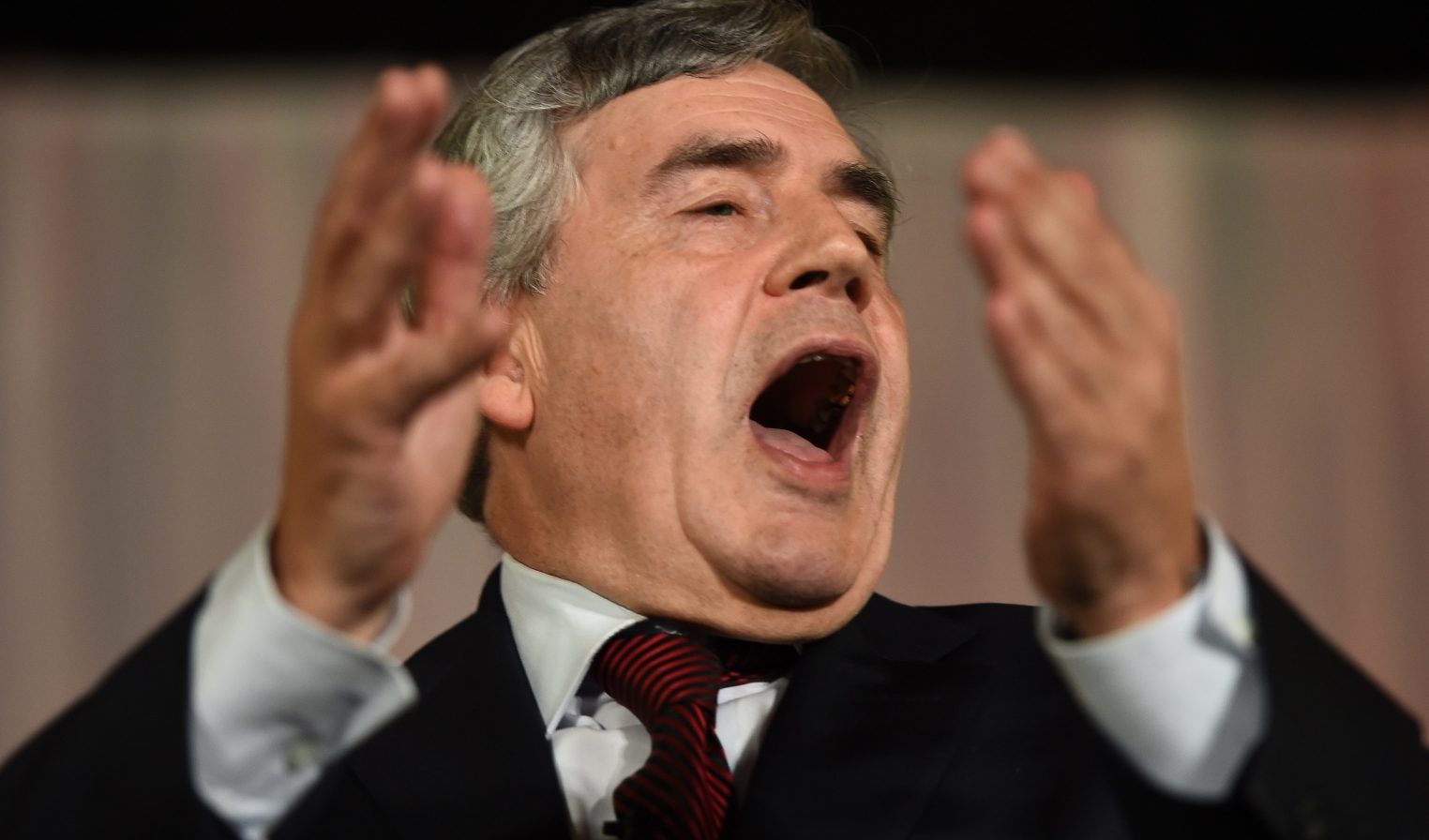Rogue bankers responsible for the 2008 crash should be locked up, says Gordon Brown.
The ex-prime minister, who has been widely criticised for not regulating the City tightly enough as Chancellor, said the lack of proper punishment makes it “inevitable” history will repeat itself.
In his memoirs My Life, Our Times, he also recounted his first meeting with Fred Goodwin in the 1990s, when the shamed former RBS boss was an accountant involved in privatising Rosyth dockyard in Fife.
“If bankers who act fraudulently are not put in jail with their bonuses returned, assets confiscated and banned from future practice, we will only give a green light to similar risk-laden behaviour in new forms,” he wrote.
He added: “If bankers’ conduct was dishonest by the ordinary standards of what is reasonable and honest, should there not have been prosecutions in the UK as we have seen in Ireland, Iceland, Spain and Portugal?”
As well as his knighthood, the former Fife MP said Mr Goodwin should have been stripped of his bonuses and his right to be a company director.
He said: “I first came across him (Mr Goodwin) as one of the accountants involved in privatising Rosyth Dockyard.
“But over the years I saw him change.
“By the time the bank collapsed he had from his company a private suite in the Savoy costing £700,000 a year, a fleet of 12 chauffeur-driven Mercedes limousines with RBS emblazoned all over them, and he regularly used a private jet at the weekend – whether for boar hunting in Spain or following the glamorous F1 circuit around the world.”
Mr Goodwin was in charge of RBS when it racked up hundreds of billions of pounds of debt in a series of toxic deals, leading to the taxpayer stepping in to bail-out the bank.
Mr Brown also revealed he had been prepared to quit if the multi-billion pound bank bail-out package failed to prevent a further collapse in the financial markets.
The former Labour leader, whose book is out on November 7, said that “at no point did I ever hear Fred Goodwin express real contrition to me – or to anyone else – for his role in the bank’s collapse”.
And he warned “little has changed” since 2009 and the banks that were deemed “too big to fail” were now even larger.
